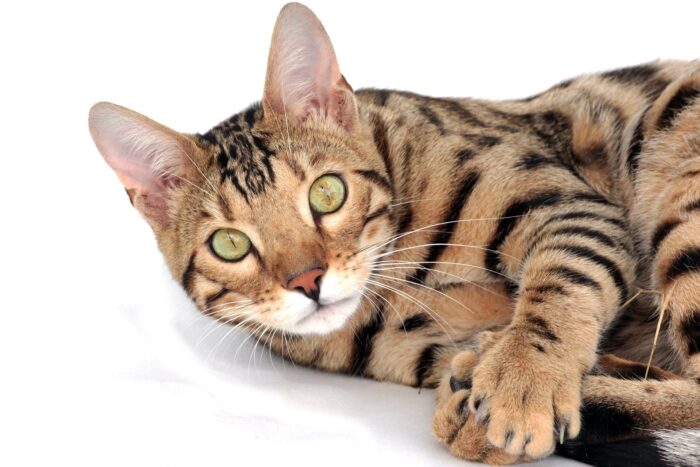Bengal cats are a popular and exotic breed of domesticated cats that are known for their unique and stunning coats, which resemble those of wild leopards. However, like all domesticated pets, Bengal cats are susceptible to various health issues that can affect their quality of life. In this article, we will cover some of the most common health issues that affect Bengal cats and provide some tips on how to keep your furry friend healthy and happy.
Bengal cats are known for their unique personality, intelligence, and stunning looks. They are an active, playful, and affectionate breed of cats that require a lot of attention and care. However, like all pets, Bengal cats are prone to various health problems that can impact their overall health and well being.
Feline Leukemia Virus (FeLV)
Feline Leukemia Virus is a common viral infection that affects cats of all breeds, including Bengals. This virus can weaken a cat’s immune system and make them more susceptible to other infections and diseases. FeLV is transmitted through bodily fluids, such as saliva, urine, and blood, and can be contracted through mutual grooming, shared food and water dishes, or biting. Symptoms of FeLV can vary and include weight loss, fever, lethargy, and anemia. There is no cure for FeLV, but early diagnosis and treatment can help manage the symptoms and prolong a cat’s life.
Feline Immunodeficiency Virus (FIV)
Feline Immunodeficiency Virus, also known as FIV, is another viral infection that affects cats, including Bengals. This virus can weaken a cat’s immune system and make them more prone to other infections and diseases. FIV is transmitted through bodily fluids, such as saliva and blood, and can be contracted through biting or mutual grooming. Symptoms of FIV can vary and include fever, weight loss, and anemia. There is no cure for FIV, but early diagnosis and treatment can help manage the symptoms and prolong a cat’s life.
Hypertrophic Cardiomyopathy (HCM)
Hypertrophic Cardiomyopathy is a genetic heart condition that affects many cat breeds, including Bengals. HCM is characterized by the thickening of the heart’s walls, which can lead to heart failure and other cardiac issues. Symptoms of HCM can include rapid breathing, lethargy, and difficulty breathing. There is no cure for HCM, but early diagnosis and treatment can help manage the symptoms and prolong a cat’s life.
Obesity
Obesity is a common health issue that affects many cats, including Bengals. Obesity can lead to various health problems, such as diabetes, joint issues, and heart disease. To prevent obesity, it’s important to provide your Bengal cat with a balanced diet, regular exercise, and avoid overfeeding.
Dental Issues
Dental problems are common in cats, including Bengals. Poor dental hygiene can lead to various health issues, such as gum disease, tooth decay, and bad breath. To prevent dental problems, it’s important to provide your Bengal cat with regular dental cleanings and dental-friendly food.
Urinary Tract Infections (UTIs)
Urinary tract infections are a common health issue that affects many cats, including Bengals. UTIs can cause discomfort, pain, and even kidney damage. Symptoms of UTIs can include frequent urination, blood in the urine, and difficulty urinating.
Treatment for UTIs can include antibiotics and dietary changes. To prevent UTIs, ensure that your Bengal cat drinks enough water and has a clean litter box. It’s important to seek veterinary care as soon as possible if you suspect your cat may have a UTI.
Parasites
Bengal cats can also be affected by various parasites, such as fleas, ticks, and worms. Parasites can cause discomfort, itching, and even lead to serious health issues if left untreated. It’s important to regularly check your Bengal for parasites and use preventative measures, such as flea and tick medication and regular deworming.
Allergies
Bengal cats can also suffer from allergies, which can cause skin irritation, itching, and even respiratory issues. Allergies can be caused by various factors, such as food, pollen, and dust. Treatment for allergies can include medication and identifying and avoiding the allergen.
It’s important to monitor your Bengal for any signs of allergies and seek veterinary care if necessary. With proper care and attention, you can help ensure that your Bengal cat stays healthy and happy for many years to come.
FAQs
How often should I take my Bengal cat to the vet?
-
It’s recommended to take your Bengal cat to the vet for a checkup at least once a year.
Can Bengal cats be prone to heart disease?
-
Yes, Bengal cats can be prone to heart disease, especially if they are overweight or have a poor diet.
What should I feed my Bengal cat to help prevent obesity?
-
You should provide your Bengal cat with a balanced and healthy diet, and limit their intake of treats and snacks.
Can Bengal cats suffer from allergies?
-
Yes, Bengal cats can suffer from allergies, which can cause skin irritation, itching, and even respiratory issues.
How can I help prevent dental issues in my Bengal cat?
-
You can help prevent dental issues in your Bengal cat by providing regular dental care, such as brushing their teeth and providing dental treats or toys.
Shop purr-fectly for your feline friend with our vet-approved supplies!
In conclusion, Bengal cats are generally healthy and resilient cats, but they can still suffer from various health issues. It’s important to provide your Bengal with proper care, regular checkups, and a healthy lifestyle to help prevent and address any health issues that may arise. By being aware of the common health issues that affect Bengals, you can help ensure that your beloved feline companion stays healthy and happy.

Dr. Katie Lawlor is a seasoned expert in pet care with over 8 years of experience dedicated to enhancing the well-being of pets and their families. As a passionate advocate for animal health, Dr. Lawlor combines her extensive knowledge with a compassionate approach, offering valuable insights and practical advice on pet wellness. Her commitment to improving the lives of pets and their owners is reflected in her engaging content on PetPawsitively .com. Follow Dr. Lawlor’s work and connect with her on Instagram for expert tips and support.

